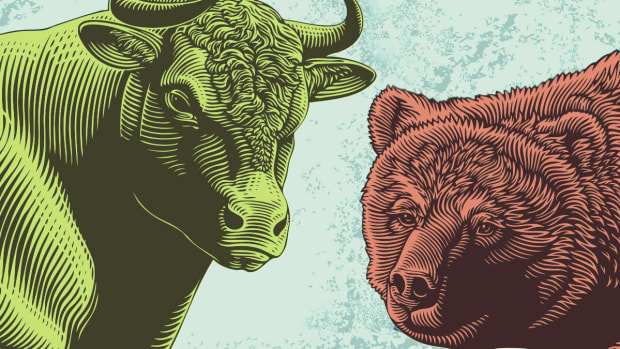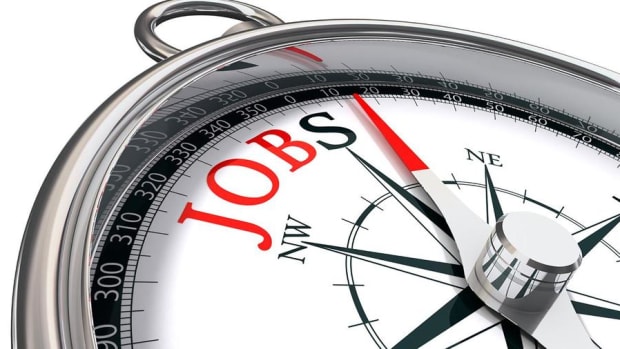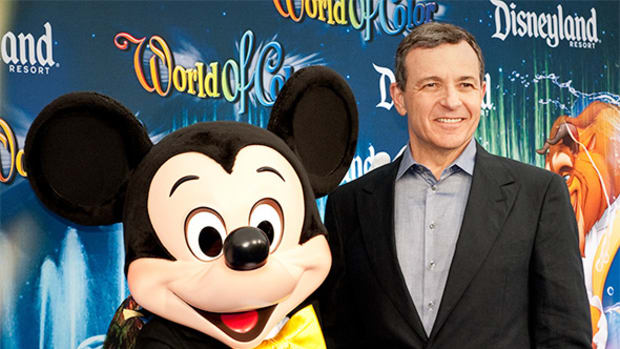Trump Is Back, But Has Wall Street Left Him Behind?
He's back.
This week former President Donald Trump announced, as expected, that he will run for his former office in 2024, setting up a potential rematch with current President Joe Biden.
Trump made his announcement in front of a crowd at Mar-a-Lago, Trump's home and golf resort in Palm Beach, Florida.
But things were much different this time around.
When Trump announced his intention to run in 2016 at Trump Tower in New York City, the cable news networks dedicated their entire broadcasts to the announcement.
This time around, even Fox News, one of the news networks responsible for carrying the most water for Trump during his presidency, cut away from the announcement after a few minutes.
Much of Trump's right-wing media support has eroded since the January 6 riots that saw his supporters storm the Capitol building in order to change the outcome of the 2020 election.
Wall Street was one of the biggest beneficiaries of the Trump presidency, with lax rules and tax breaks fueling one of the most profitable four-year periods in the history of the exchanges.
Despite the fond memories, Trump's support on Wall Street seems to be fracturing also.
Wall Street Backing off Trump Support
Stephen Schwarzman, founder of private equity giant Blackstone Group, is officially off the Trump train.
Schwarzman, who was one of the biggest donors to Trump's 2020 re-election campaign, according to Reuters, told Axios that he will not support him in 2024, opting the back a different unnamed Republican this time around.
"It is time for the Republican Party to turn to a new generation of leaders and I intend to support one of them in the presidential primaries," he said.
Schwarzman has money to spend, reportedly spending $35.5 million to support republicans during the recent mid-term elections.
For context on just how important that money is, 96% of U.S. House races in this most recent election cycle were won by the candidate that spent the most money, according to Open Secrets.
Florida Governor Ron DeSantis is Trump's biggest rival on the Republican side this time around, and some defectors are already openly supporting the governor.
Kenneth Griffin, founder of investment firm Citadel, didn't mince words when he told Bloomberg News that "I'd like to think that the Republican Party is ready to move on from somebody who has been for this party a three-time loser."
He is openly backing DeSantis while urging Trump to "see the writing on the wall" about his latest presidential bid.
The New York Times identified Republican megadonors like Richard Uihlein, options trader Jeffrey Yass, and Oracle Corp. co-founder Larry Ellison, as donors to watch who could follow Griffin and Schwarzman away from Trump.
One Wall Street presence seems to be sticking by his man.
Robert Kiyosaki, author of Rich Dad Poor Dad and professional financial advice giver, didn't officially endorse Trump, but he did name drop him in a tweet.
Wall Street Under Trump
If Wall Street does turn against Trump it will be a clear case of what have you done for me lately.
Trump left office, kicking and screaming, at the start of 2021 with the major U.S. benchmarks near all-time highs.
Annualized returns for the S&P 500 saw annualized returns rise 13.73% during the Trump presidency, according to MarketWatch, while the Nasdaq saw annualized returns of 24.175 and the Dow rose 11.77%.
The Nasdaq's performance under Trump was by far the strongest under any president, but Presidents Bill Clinton and Barack Obama saw stronger Dow Jones and S&P returns.
To be fair to Trump, however, the once-in-a-lifetime (fingers-crossed) pandemic took a big chunk out of his performance in 2020, and may have even paved the way for his defeat.
If Wall Street does forget what Trump accomplished during his presidency, attempted insurrections tend to have a chilling effect on political enthusiasm, the former President will have a much tougher path to the White House this time around than he had eight years ago.





